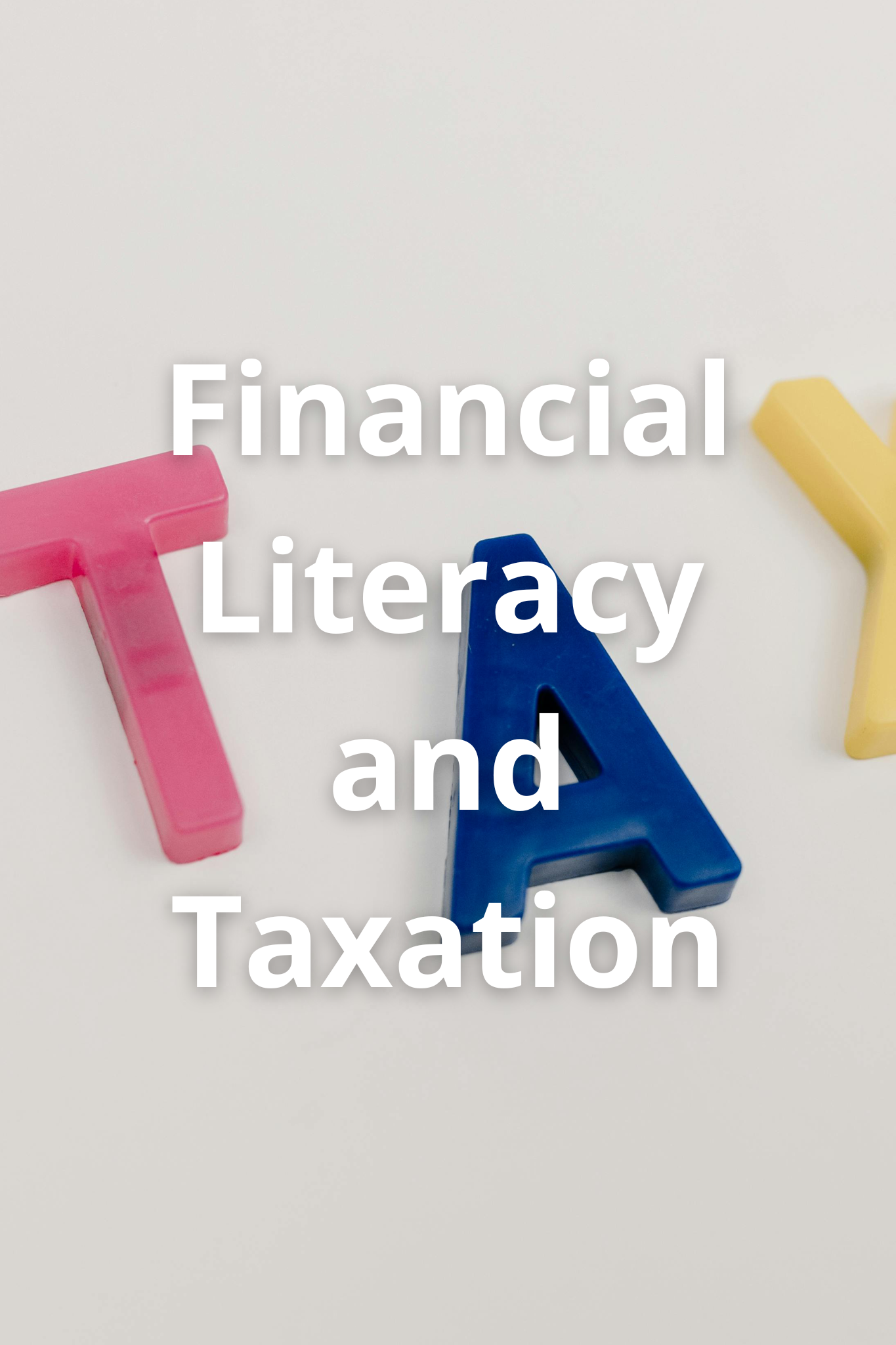
As an educator and blogger, I’ve often found that understanding financial systems, particularly taxation, is a crucial part of developing financial literacy. Many students and readers approach the topic of taxation with apprehension, finding it complex and overwhelming. However, a solid grasp of tax systems can significantly enhance one’s financial decision-making and societal awareness. In this essay, I aim to demystify taxation, exploring its various types, its importance, and its impact on individuals and society.
Read also: A Legal Perspective on Taxation
The Framework of Taxation
At the heart of any functioning government is a structured system to collect revenue, primarily through various forms of taxation. These revenues fund public services and infrastructure, ensuring the smooth operation of society. The design of tax systems varies widely across different countries, but they generally share common types and principles.
Income Tax: This is one of the most prevalent forms of taxation. Individuals and corporations are required to pay a portion of their earnings to the government. For individuals, the tax rate often increases with higher income brackets, a system known as progressive taxation. This progressive nature helps to address income inequality by imposing a higher tax burden on those who can afford it.
Corporate Tax: Corporations pay taxes on their profits. The intricacies of corporate taxation involve numerous deductions, credits, and incentives aimed at encouraging business investment and economic growth. Understanding these nuances is crucial for businesses to optimize their tax liabilities while complying with legal requirements.
Sales Tax: This consumption tax is added to the price of goods and services at the point of sale. It is generally regressive, meaning it takes a larger percentage of income from lower-income individuals. Despite this, sales tax is a significant revenue source for many states and local governments.
Property Tax: Based on the value of owned real estate, property taxes fund local services like schools, police, and infrastructure maintenance. Property assessments determine the amount payable, making it essential for property owners to understand their local tax regulations.
Excise Tax: Applied to specific goods such as alcohol, tobacco, and fuel, excise taxes serve both revenue-generating and regulatory functions. They aim to reduce consumption of potentially harmful products while providing funds for public services.
The Importance of Understanding Taxation
Grasping the basics of taxation is fundamental to financial literacy. For students and the general public alike, understanding how taxes work can lead to better financial planning and informed decision-making.
Funding Public Services: Taxes are the backbone of public funding. Schools, hospitals, roads, and emergency services are all maintained through tax revenue. Understanding this connection helps individuals appreciate the value of their contributions to society and the services they benefit from.

Economic Stability: Taxes play a crucial role in stabilizing the economy. During economic downturns, government spending funded by tax revenues can stimulate growth and create jobs. Conversely, during periods of inflation, increased taxes can help cool down the economy by reducing disposable income and slowing down spending.
Wealth Redistribution: Progressive taxation systems are designed to reduce income inequality by imposing higher taxes on the wealthy. This redistribution helps to provide social services and benefits to lower-income individuals, promoting social equity and cohesion.
Impact on Individuals and Businesses
Taxation impacts both individuals and businesses in significant ways. For individuals, understanding tax obligations can enhance personal financial management and compliance. For businesses, strategic tax planning is essential for profitability and growth.
Individuals: Personal finance is closely linked to tax obligations. From filing annual returns to understanding deductions and credits, individuals must navigate a complex tax system. Effective tax planning can lead to significant savings and financial stability. For example, contributing to retirement accounts not only secures future financial health but also provides immediate tax benefits.
Businesses: For businesses, taxes influence decisions on investment, expansion, and operations. Corporate tax rates and regulations can affect the overall business strategy, impacting profitability and competitiveness. Businesses must ensure compliance with tax laws to avoid penalties and optimize their tax liabilities through strategic planning and use of available incentives.
Strategies for Effective Tax Management
Managing taxes effectively requires a proactive approach and a deep understanding of the tax code. Here are some strategies that both individuals and businesses can employ:
Proactive Planning: Effective tax planning involves anticipating tax liabilities and taking steps to minimize them. This includes timing income and deductions, maximizing tax-advantaged accounts, and understanding the tax implications of major financial decisions.
Record Keeping: Keeping detailed and accurate records is crucial for substantiating deductions and credits. Good record-keeping simplifies the tax filing process and ensures compliance with tax regulations. It is also essential for responding to any inquiries from tax authorities.
Professional Advice: Given the complexity of tax laws, seeking advice from tax professionals can provide significant benefits. Accountants and tax advisors can offer insights into tax-saving opportunities and ensure that individuals and businesses comply with all relevant laws.
Education and Awareness: Staying informed about changes in tax laws and understanding their implications is critical. Attending workshops, reading financial news, and consulting with tax professionals can help keep individuals and businesses up-to-date and prepared for any changes.
Leveraging Technology: Utilizing tax preparation software and financial management tools can streamline the tax management process. These tools can help ensure accuracy, identify potential issues, and simplify compliance efforts.
Contemporary Issues in Taxation
The field of taxation is dynamic, with ongoing debates and reforms shaping its future. Some contemporary issues include:
Tax Reform: Governments periodically reform tax codes to simplify the system, improve compliance, and address economic inequalities. Recent reforms have focused on reducing corporate tax rates, expanding credits and deductions, and addressing international tax challenges.

Digital Economy: The rise of digital businesses presents new challenges for tax systems. Traditional tax structures struggle to address issues like digital transactions and profit allocation for multinational tech companies. Legal frameworks are evolving to better capture revenue from the digital economy.
Wealth Tax: Proposals for a wealth tax aim to address income inequality by taxing the net worth of the wealthiest individuals. This concept raises complex legal questions about valuation, enforcement, and economic impact.
Environmental Taxes: As part of efforts to combat climate change, some jurisdictions are implementing taxes on carbon emissions and other pollutants. These taxes aim to incentivize environmentally friendly practices but also pose legal and economic challenges.
Conclusion
Understanding the intricacies of taxation is essential for financial literacy and effective financial management. Taxes fund vital public services, stabilize the economy, and promote social equity. Both individuals and businesses must navigate the complexities of tax obligations, utilizing proactive planning, diligent record-keeping, and professional advice to optimize their tax positions and ensure compliance.
As a university teacher and blogger, my goal is to demystify tax law and provide practical advice that helps readers manage their tax responsibilities confidently and effectively. Through education and awareness, we can all achieve better financial outcomes and support a fair and efficient tax system that benefits everyone.






